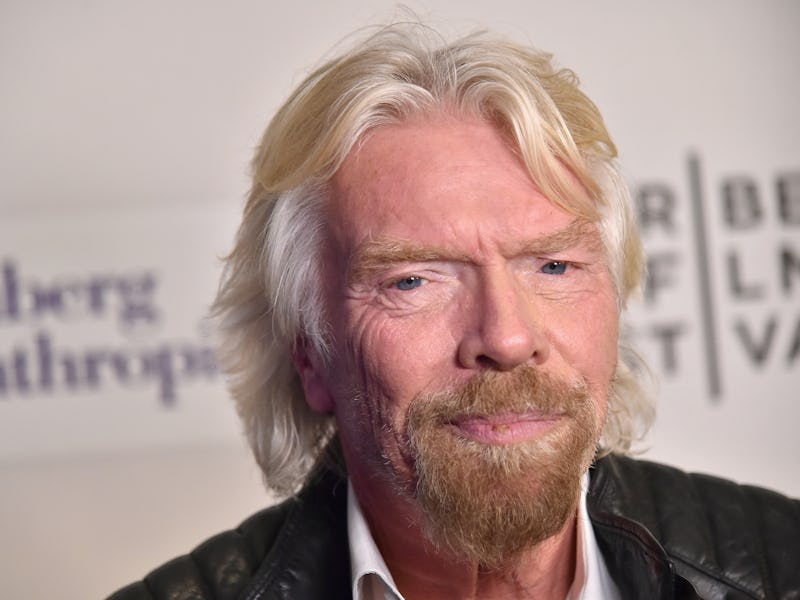Can Richard Branson Win the War With the War on Drugs?
The drug decriminalization advocate points at the black community and other minorities as the real targets of the war on drugs.

British billionaire Sir Richard Branson has just fired another round of shots on advocates of the global drug war. The Virgin Group founder and member of the Global Commission on Drug Policy — a war on drugs fighting supergroup that includes former UN Secretary General Kofi Annan — has published another statement rallying support for international decriminalization of recreational drugs.
The piece, published in Germany’s Zeit Online, is the latest in a series of appeals the business magnate has written over the past four years during his condemnation of the drug war, which he argues has reduced neither the supply nor demand for illegal substances and instead has only exacerbated violence against “minorities, the poor, and the disenfranchised.”
Branson called attention to the true victims of drug criminalization, playing the race card; he cites evidence that the real targets of Richard Nixon’s war on drugs — which he traces back to 1961, when the U.N. asserted that drugs themselves were a threat to humanity — were actually anti-war protesters and the black community.
In his piece, he quotes a 1994 statement from John Erlichman, Nixon’s domestic policy advisors: “We knew we couldn’t make it illegal to be either against the war or black, but by getting the public to associate the hippies with marijuana and blacks with heroin, and then criminalizing both heavily, we could disrupt those communities.”
Branson, citing statistics showing that black Americans are sent to prison at 10 times the rate of white Americans, goes on to write: “The war on drugs has always been a war on people, disproportionately and excessively targeting minorities, the poor, and the disenfranchised.”
The statement is the first he’s written since April, when he issued a statement after the U.N. General Assembly held a special session to debate global drug policy for the first time in 18 years.
In the days following UNGASS, he published an article in The Guardian calling the U.N.’s conclusions — which asserted that “criminalization of non-medical drug use is still the best policy to take, despite the inhumanity of the current strategy long on rhetoric and short on substance.” He went on to blast the UNGASS policymaking process, calling the organization out for failing to take into account the interests of all 193 member states, many of which actually support policies favoring decriminalization.
In the month prior to UNGASS, Branson had leaked a draft of a U.N. Office on Drugs and Crime brief suggesting that the U.N. was poised to endorse the international decriminalization of recreational drugs. After the leak, the UNODC quickly issued a statement calling the nature of the leak an “unfortunate misunderstanding.” That leaked draft apparently also acknowledged the millions of people imprisoned as a result of nonviolent, minor drug offenses and showed evidence that the threat of criminal sanctions or imprisonment prevented users from receiving the healthcare they needed to kick their drug habits.
The focus on the human impact of the war on drugs remains the greatest argument against criminalization, one that Branson and the rest of the Global Commission on Drug Policy continues to push. But despite evidence that an increased focus on harm reduction and a focus on the public health approach to drug control actually works — Branson cites Canadian and Uruguayan efforts to legalize marijuana as examples — global decriminalization of illegal drugs appears unlikely to happen anytime soon, if the U.N.’s stubbornness is any indication.